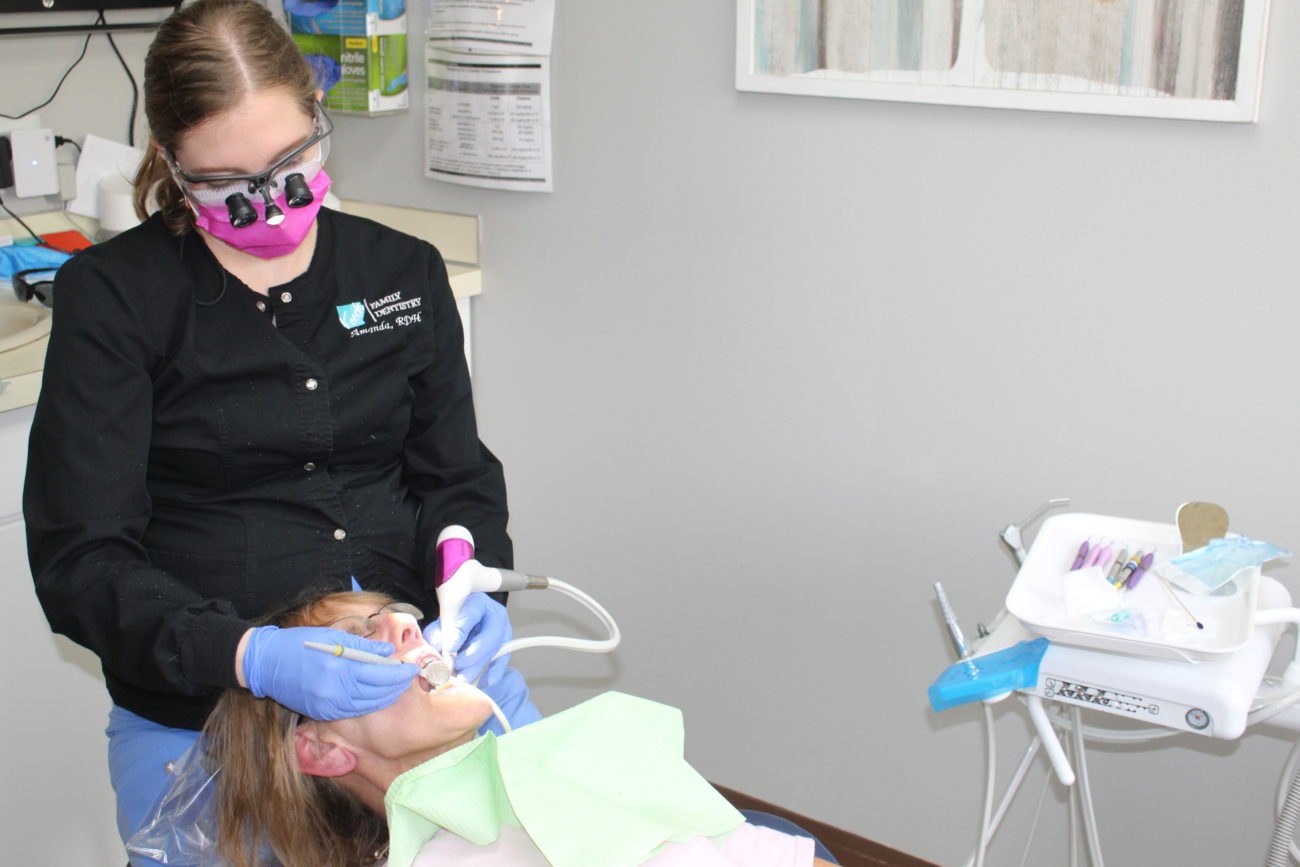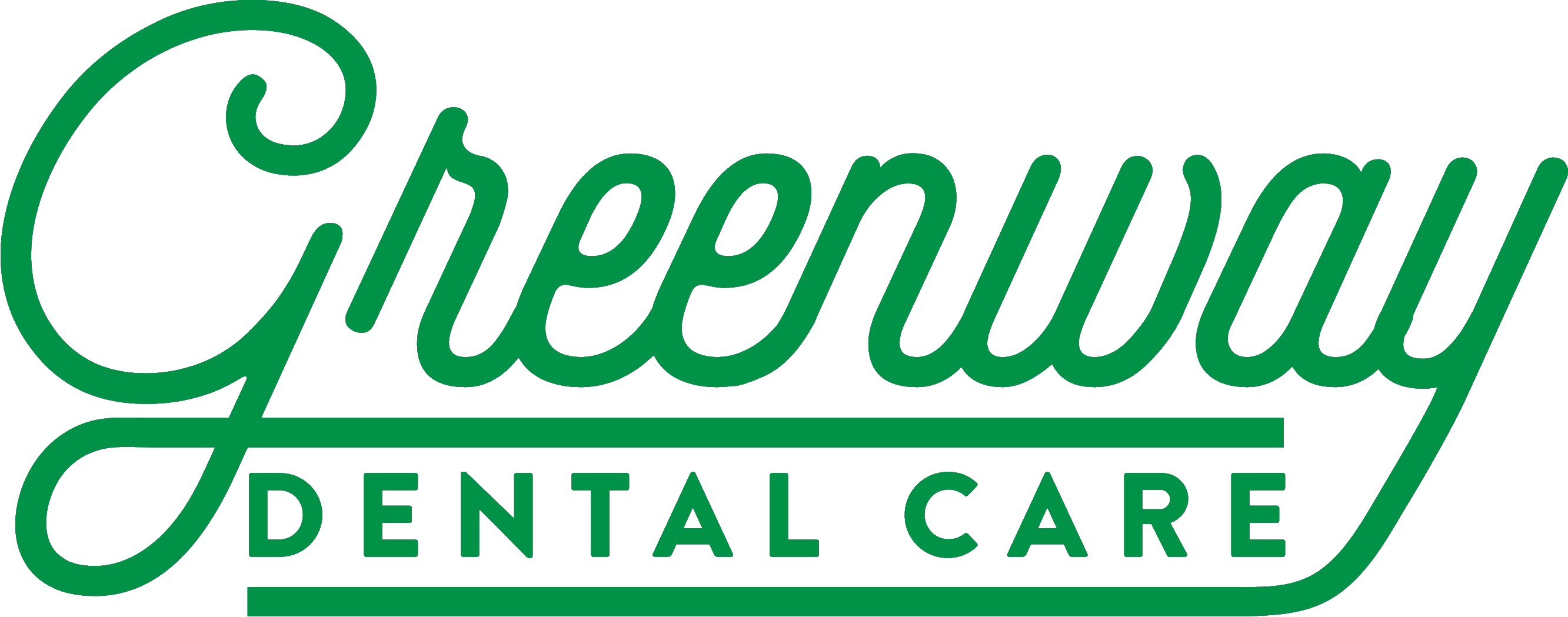Posted By: Amanda Banks, BS RDH
Dental cleanings can vary greatly depending on the patient. A child generally has a much faster cleaning than an adult. Some patients have gum disease and may need a more focalized cleaning for specific areas of their mouth. A patient may need to be cleaned in a different way than another patient based on tartar build up or stained teeth.
So, what all goes into the cleaning process? What do we look for? Why is a professional dental cleaning from a hygienist so much more than what you can do at home?

First, you are in the hands of a well-trained professional
Most people do not know what goes into becoming a Registered Dental Hygienist (RDH). They are often confused with Registered Dental Assistants (RDA). Dental assistants can be trained on the job and then take an exam to become an official RDA. Some dental assistants go through an educational program, but the program is generally only a couple of months long and they often don’t get to work with patients at all while in school.
In contrast, dental hygienists must go to school for at least two years (three years if you include prerequisites) and take multiple board exams in order to get their license. We take a variety of courses, not just about how to clean teeth, but about the development of teeth, pharmacology, nutrition, taking x-rays, and many others. We spend many hours in the clinic and see many patients while in school so that once we get a job in an office we are already experienced. Many hygienists have an associates degree, but some get bachelor degrees or even go on to masters or doctorate level degrees. Hygienists with masters and doctorates generally go on to work in public health or other settings.
Second, we can clean much more thoroughly than you can at home
When you brush and floss at home, there is only so much that you can do. Even with proper technique, there are areas that your brush and floss can’t reach. Additionally, once tartar has formed on your teeth, brushing and flossing cannot remove it. To remove tartar, we must use some type of scaler (you may call them scrapers or the waterjet that we use). You can develop tartar anywhere, but most people are familiar with the tartar that forms behind their lower front teeth. That area is generally where people develop the most tartar, and since it is also the easiest area to feel with your tongue the difference is noticeable after your cleaning.
Similarly, some staining cannot be removed at home. Not all stain can be removed, but we can generally remove most of it and get a very nice result. We are also able to clean under your gums. Your toothbrush is generally considered only to reach about .5mm under your gums. We can go anywhere from 1-5mm in those same areas. Floss can clean deeper than your brush when it comes to cleaning between the teeth (if you are flossing correctly), and a waterflosser can go deeper as well. This is part of why we emphasize flossing and using adjuncts like a waterflosser, so that these areas can be cleaned more than just the twice a year that you come to see us.
Third, we keep an eye out for gum disease and all sorts of other things
Gum disease (also called gingivitis or periodontitis) is kind of the silent killer of the dental world. You don’t generally know that you have it (unless we tell you) until it is very progressed to the point that your gums bleed like crazy, and your teeth become loose. By this point, it is very difficult to manage. You want us to catch it long before that happens so that we can help you manage it and help you keep your teeth. Some people are more prone to gum disease than others, and unfortunately, gum disease generally doesn’t go away. It’s like many other diseases in that it must be managed for your lifetime. This is becoming even more important as more and more research comes out linking gum disease to heart disease, diabetes, and other systemic conditions.
In addition to gum disease, as we clean we also look for anything else concerning or out of the ordinary. The dentist is the one who will officially diagnose any conditions that you have, but we help them out by looking for signs of decay, infection, oral cancer, or anything else unusual as we clean.
Fourth, hopefully, you can learn something from us
We really try to teach you how to improve your oral health, so that each visit can be better than the last and you can be healthy. We can go over brushing and flossing technique with you to make sure you are cleaning in an efficient and effective way. We can also recommend specific brands or products that may help improve your teeth or gum health. I cannot tell you how many people are out there flossing incorrectly, or missing areas when they brush. If we can correct this, your cleanings will become easier and your mouth will be healthier. This is always the ultimate goal.
Visit Greenway Dental Care in Fayetteville, AR
To schedule your routine screening and dental cleaning, visit our Fayetteville dentist office. At Greenway Dental Care we offer a full menu of dental service to meet you every dentistry need. To schedule your appointment, call (479) 217-3178 or request an appointment online.
